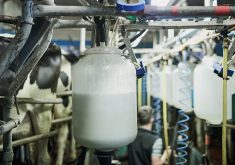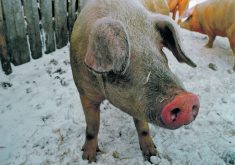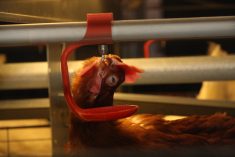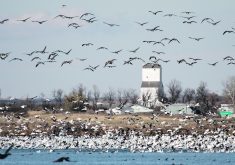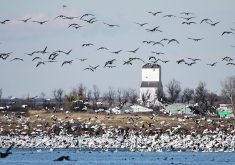More than 50 commercial operations are in quarantine following two farms in Abbotsford reporting an outbreak Nov. 16
British Columbia’s commercial poultry industry in the Fraser Valley is being pummelled by an avian influenza outbreak that will likely be the worst the country has seen in a year.
More than 50 commercial operations are in quarantine following two farms in Abbotsford reporting an outbreak Nov. 16.
Another 30 operations in Abbotsford have reported cases since the nearby communities of Chilliwack and Langley also saw multiple commercial poultry farms affected by the outbreak.
The situation will likely see B.C. top Alberta’s 1.4 million birds culled due to bird flu this year, according to Amanda Brittain, chief information officer at the B..C Poultry Association’s emergency operations centre.
Read Also

Saskatchewan puts crown land auction on hold
Auctions of Saskatchewan crown lease land are once again on hold.
“We have some farms that are in 17 different primary control zones,” said Brittain, describing the restricted areas established by the Canadian Food Inspection Agency around infected farms.
“And there is more going in almost daily.”
This year’s outbreak across the continent is being blamed on high infection rates in migratory bird populations.
Brittain said the fall outbreak has been particularly devastating because of the Fraser Valley’s relatively warm climate.
“Here in the Fraser Valley, we’re in two different (migratory bird) flyways. But a lot of migratory birds will overwinter here just because we don’t have the cold,” she said.
“We have resident populations of geese, swans and ducks — all primary carriers.”
Brittain said there are fears the highly virulent strain may have entered groundwater or dust, leaving little ability to protect farms from infection.
The Fraser Valley outbreak appears to be following a pattern across the West this year. The virulent strain manages to breach on-farm biosecurity with no indication that it’s being spread from operation to operation.
“The epidemiology is showing all single source incursion,” said Brittain, adding not all the reports have been completed.
“We’re seeing zero evidence of farm-to-farm transfer.”
The density of poultry farms in the Fraser Valley is complicating matters, however.
The area was the scene of the country’s first avian influenza outbreak in 2004 and has had several smaller outbreaks since then.
Brittain said those incidents influenced preparations for future outbreaks. The industry locked down early in the spring and initiated heightened biosecurity when it became apparent the continent was facing high numbers of wild bird infections.
“People are hyper vigilant, farmers are not meeting in person, all of our producer meetings are by Zoom, I think all of the groups have cancelled Christmas parties just to minimize the risk of farm-to-farm transfer,” she said.
“I think it’s just our environment here in B.C. that has made it so bad.”
The scale of the outbreak is also taking its toll on poultry producers’ mental health, Brittain added.
“All of the (poultry) boards are worried about the mental health of our farmers. They are dealing with so much. We had the floods a year ago here in the Fraser Valley, then a heat dome and now avian influenza. It’s a lot,” she said.
AgSafe BC is providing resources such as a crisis line and peer-to-peer chats for farmers having trouble with the situation.
“Anybody can reach out at any time and get some help. We’re promoting those resources to all of our producers and growers. We don’t want anybody to feel overwhelmed and so anxious that they are considering something drastic,” said Brittain.
The situation is also anticipated to lead to a turkey shortage in B.C. over the holiday season.
More than 4.5 million birds have been culled so far this year across nine provinces with Prince Edward Island the only jurisdiction to not report an outbreak.







